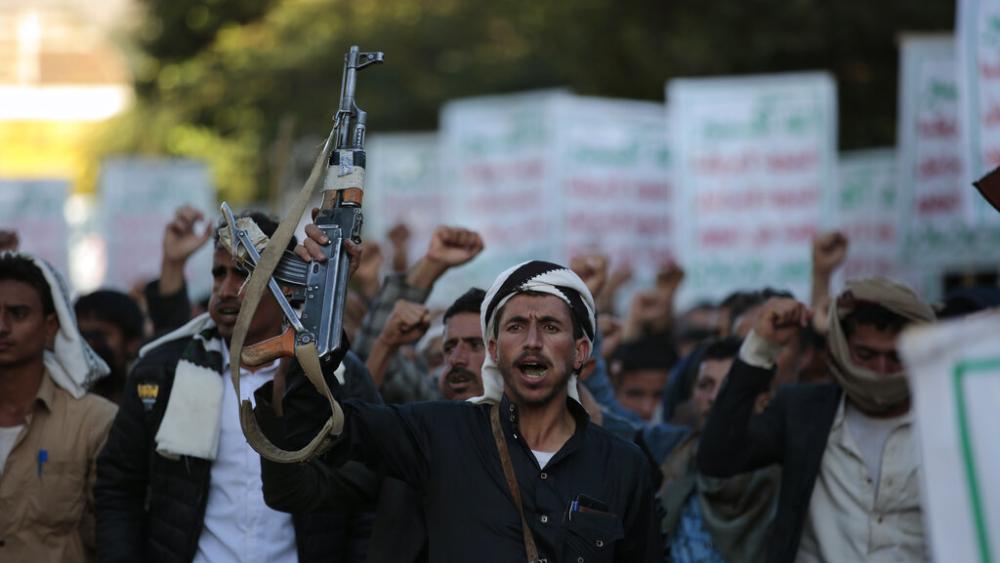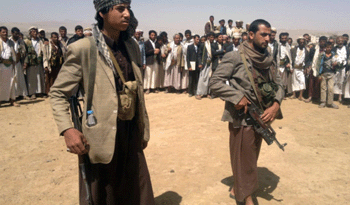02-01-2022 Chris Mitchell

A Houthi supporter holds a weapon as he chants slogans during a rally against the U.S. support to the Saudi-led coalition in Sanaa, Yemen, Monday, Nov. 22, 2021. (AP Photo/Hani Mohammed)
JERUSALEM, Israel – Within the past two weeks, the Iranian-backed Houthis have fired ballistic missiles at the United Arab Emirates. It’s a sign this group has emerged as a major player in the Middle East.
For years, the Houthis have waged a guerrilla war to control the strategic country of Yemen. But they’ve now grown from small arms to long range missiles.
“The Houthis, backed by the Iranians, have really been put on steroids in terms of their abilities. This was a militia that was using AK-47’s and RPGs in those days. Now they’re using drones and ballistic missiles that can go 1,000 (620 miles) or 2,000 kilometers (1240 miles), so it’s clear that the Iranian hand is basically using them as a proxy to terrorize the region and potentially threaten Israel, the United States, all over this area,” says Seth Frantzman of the Middle East Center for Reporting and Analysis.
If they control Yemen, the Houthis will also control the strategic Bab el-Mandeb waterway, where a large amount of the world’s oil passes. They also pose a serious threat to their Arab neighbors. The Houthi missiles traveled nearly 900 miles before hitting their targets in the UAE. After one attack, the Houthis boasted about attacking the American allies. And they sent a message to both Israel and the UAE by launching missiles during this week’s visit by President Isaac Herzog.
Frantzman says this group has now become a major player in the region.
“We are certainly entering a new era in terms of the Iranian-backed Houthis in Yemen, [which] is now a big player and will look to become another type of Hezbollah. And that will have big ramifications for the United States, for Israel, for Saudi Arabia and the Gulf and all these partners and potentially international trade,” said Frantzman.
Some fear it could be a dangerous turning point for the Middle East. Yet last year, the Biden administration took the Houthis off the list of foreign terrorist organizations, a move criticized by the UAE ambassador to the US.
“We are asking our friends in the administration and in Congress to reinstate the Houthi terrorist designation as an FTO (foreign terrorist organization). I think the case speaks for itself,” said UAE Ambassador Yousef al-Otaiba.
Some believe the Biden administration took the Houthis off the list to curry favor with Iran at the nuclear talks in Vienna. But Frantzman says in the larger Middle East picture, the region faces two visions for the future.
“One wants a Middle East that is taken over by a bunch of Iranian-style mafias that is spreading poverty and chaos and religious extremism. And the other one is a model, what do you see when you go to Tel Aviv or Abu Dhabi or Jerusalem – you see cities that are functioning and people that are able to go to school and university and improve the world. So, it’s basically two diametric different types of visions.”
